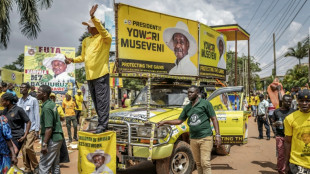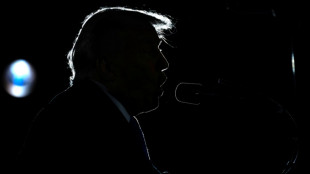
-
 'Gigantic explosion', fire in Dutch city of Utrecht, four hurt
'Gigantic explosion', fire in Dutch city of Utrecht, four hurt
-
Twenty-six charged in latest basketball gambling scandal

-
 Venezuela's Machado meets Trump for 'positive' talks despite snub
Venezuela's Machado meets Trump for 'positive' talks despite snub
-
NBA Europe 'must respect tradition', says commissioner Silver

-
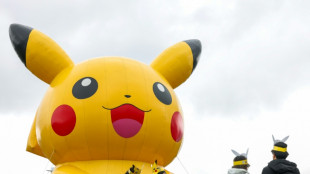 Thieves steal Pokemon cards in armed robbery at US store
Thieves steal Pokemon cards in armed robbery at US store
-
French Olympic champion Papadakis claims she was under partner's 'control'

-
 Fury over Grok sexualized images despite new restrictions
Fury over Grok sexualized images despite new restrictions
-
US says Iran halts executions as Gulf allies pull Trump back from strike
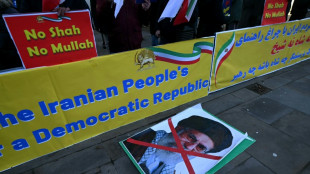
-
 Frank says Spurs taking 'small steps' in right direction
Frank says Spurs taking 'small steps' in right direction
-
Syrian activist Sarah Mardini acquitted of migrant trafficking in Greece

-
 Goldman Sachs' profits jump on hot merger market
Goldman Sachs' profits jump on hot merger market
-
Platini says Infantino has become 'more of an autocrat'

-
 Scottish Borders, Lake District to grace 2027 Tour de France
Scottish Borders, Lake District to grace 2027 Tour de France
-
Venezuela's sidelined Machado arrives at White House for Trump talks

-
 French mother superior bullied nuns at Paris order: inquiry
French mother superior bullied nuns at Paris order: inquiry
-
Cuba pays tribute to soldiers killed in Maduro capture

-
 UK politician joins hard-right Reform just hours after Tories sack him
UK politician joins hard-right Reform just hours after Tories sack him
-
'Gigantic explosion', fire in Dutch city, four hurt

-
 French mother superior bullied nuns at Paris convent - inquiry
French mother superior bullied nuns at Paris convent - inquiry
-
Deprived of heating, Kyiv enters survival mode to beat big freeze
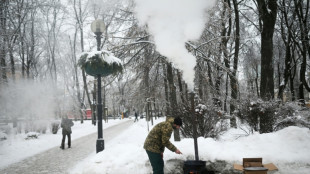
-
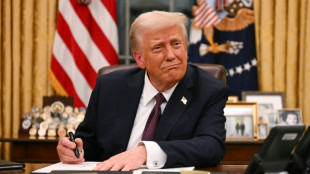 Oil prices slump after Trump eases concerns over Iran
Oil prices slump after Trump eases concerns over Iran
-
French mother superior bullied nuns in Montmartre: report

-
 Rosenior refuses to back Sanchez as Chelsea number one
Rosenior refuses to back Sanchez as Chelsea number one
-
Harry due to testify to UK court next week in last tabloid case

-
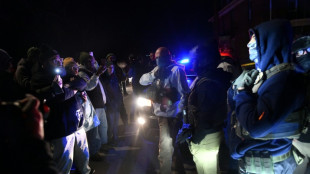 Trump threatens to invoke Insurrection Act over Minnesota protests
Trump threatens to invoke Insurrection Act over Minnesota protests
-
Niger faces dilemma over uranium shipment stuck at airport
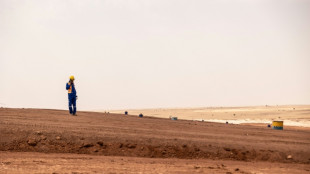
-
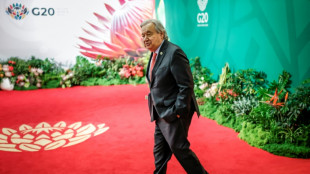 UN chief attacks world leaders putting cooperation on 'deathwatch'
UN chief attacks world leaders putting cooperation on 'deathwatch'
-
Morocco and Senegal prepare for final showdown but Salah's AFCON dream fades

-
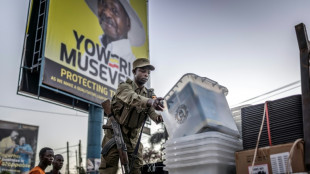 Polls close in Uganda after delays, internet blackout
Polls close in Uganda after delays, internet blackout
-
Forced confession fears as Iran chief justice interrogates protesters
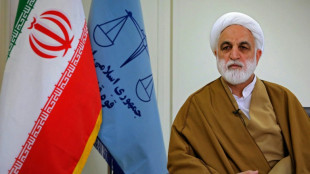
-
 Al-Attiyah closes on sixth Dakar Rally as Ekstrom wins 11th stage
Al-Attiyah closes on sixth Dakar Rally as Ekstrom wins 11th stage
-
Luis Enrique has no doubts about PSG's title credentials

-
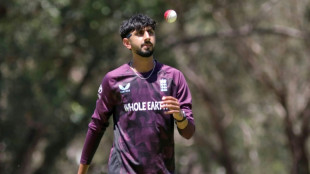 England off-spinner Bashir signs for Derbyshire after Ashes exile
England off-spinner Bashir signs for Derbyshire after Ashes exile
-
Trump convinced 'to give Iran a chance' after threats over protest crackdown
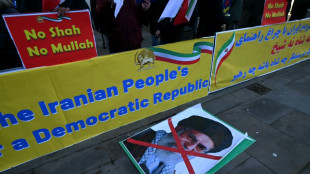
-
 European military mission in Greenland as US aim 'remains intact'
European military mission in Greenland as US aim 'remains intact'
-
UK's Hockney warns moving Bayeux Tapestry would be 'madness'

-
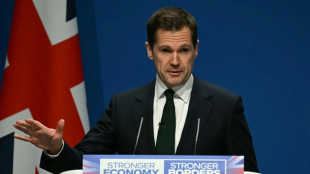 Senior UK opposition politican sacked over 'plot' to join hard-right party
Senior UK opposition politican sacked over 'plot' to join hard-right party
-
Syrians flee Kurdish-controlled area near Aleppo
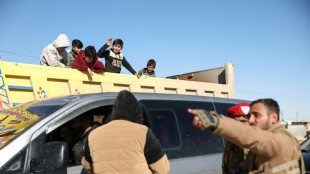
-
 Pressure piles on Musk's X to curb sexualised deepfakes
Pressure piles on Musk's X to curb sexualised deepfakes
-
Chinese dissident artist Ai Weiwei debuts in India

-
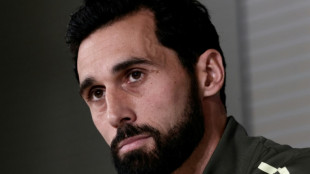 Arbeloa must act fast to avert Real Madrid crisis
Arbeloa must act fast to avert Real Madrid crisis
-
Top Bangladesh cricket official sacked amid World Cup row
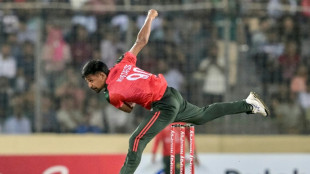
-
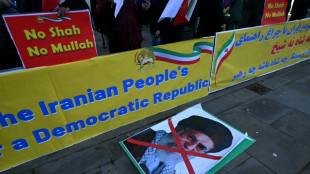 Iran vows to defend itself as Trump says will 'watch it and see'
Iran vows to defend itself as Trump says will 'watch it and see'
-
Spain hosted record 97 mn foreign tourists in 2025

-
 Ex-Olympic swim champion Agnel to face trial on rape claims
Ex-Olympic swim champion Agnel to face trial on rape claims
-
Danish PM says US ambition to take Greenland 'remains intact'
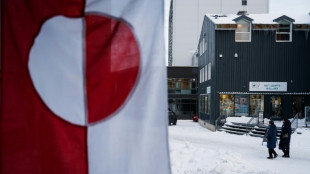
-
 In remote Senegal, chimp researchers escape gold mines' perils
In remote Senegal, chimp researchers escape gold mines' perils
-
Senegal's spear-wielding savannah chimps yield clues on humanity's past
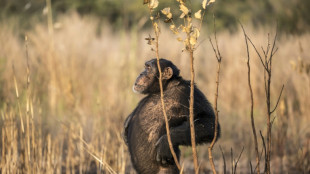
-
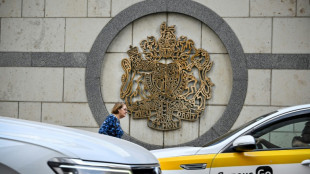 Russia expels UK diplomat accused of being spy
Russia expels UK diplomat accused of being spy
-
Uganda election hit by delays after internet blackout
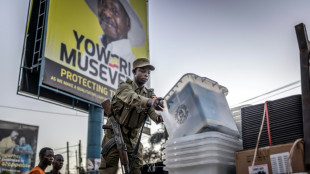
| SCS | 0.12% | 16.14 | $ | |
| CMSC | 0.74% | 23.525 | $ | |
| BCC | 2.6% | 86.295 | $ | |
| BTI | 1.12% | 58.09 | $ | |
| RIO | 0.52% | 86.332 | $ | |
| CMSD | 0.22% | 23.96 | $ | |
| BCE | 0.08% | 24.24 | $ | |
| NGG | 0.61% | 79.365 | $ | |
| RBGPF | -0.26% | 81.36 | $ | |
| GSK | -3.4% | 49.12 | $ | |
| JRI | -0.47% | 13.563 | $ | |
| AZN | -2.5% | 93.99 | $ | |
| RYCEF | -1.12% | 16.95 | $ | |
| BP | -1.92% | 35.145 | $ | |
| RELX | -0.14% | 41.86 | $ | |
| VOD | 0.59% | 13.45 | $ |

One giant step: Moon race heats up
The crash landing on the Moon of Russia's Luna-25 probe is the latest twist in an international push to return to the Earth's natural satellite that has drawn in the world's top powers and new players.
Technology, science and politics are all essential factors in the Moon race.
Here is the latest on various missions:
- Russia's Luna -
The launch of Luna-25 on August 11 was the first such Russian mission in almost 50 years and marked the beginning of Moscow's new lunar project.
On August 16 the lander was successfully placed in the Moon's orbit but on Sunday, space agency Roscomos announced it had "ceased to exist following a collision with the Moon's surface".
"Measures taken on August 19 and 20 to locate the craft and make contact with it were unsuccessful," the agency added.
It had been set to land on the Moon's surface on Monday and remain there for one year to collect samples and analyse soil.
Russian President Vladimir Putin has been working to strengthen space cooperation with China after ties with the West broke down following the start of Moscow's invasion of Ukraine in 2022.
Moscow had hoped to build on the legacy of the Soviet-era Luna programme, marking a return to independent lunar exploration in the face of financial troubles and corruption scandals at its space programme and growing isolation from the West.
- China's great leap -
China is pursuing plans to send a crewed mission to the Moon by 2030 and build a base there.
The world's second-largest economy has invested billions of dollars in its military-run space programme in a push to catch up with the United States and Russia.
China was the third country to place humans in orbit in 2003 and its Tiangong rocket is the crown jewel of its space programme, which has also landed rovers on Mars and the Moon.
The unmanned Chang'e-4 rocket landed on the far side of the Moon in 2019. Another robot mission to the near side raised the Chinese flag there in 2020.
That Moon landing brought rock and soil samples back to Earth, the first time that has been done in more than four decades.
- NASA's Artemis -
NASA's Artemis 3 mission is set to return humans to the Moon in 2025, including its first woman and first non-white astronaut.
Under the Artemis program, NASA is planning a series of missions of increasing complexity to return to the Moon and build up a sustained presence so it can develop and test technologies for an eventual journey to Mars.
Artemis 1 flew an uncrewed spacecraft around the Moon in 2022.
Artemis 2, planned for November 2024, will do the same with crew on board.
NASA sees the Moon as a pitstop for missions to Mars and has done a deal with Finnish mobile firm Nokia to set up a 4G network there.
However it has said the Artemis 3 mission may not land humans on the Moon. That will depend on whether certain key elements, including the landing system developed by SpaceX, are ready.
Elon Musk's firm SpaceX won the contract for a landing system based on a version of its prototype Starship rocket, which remains far from ready.
An orbital test flight of the uncrewed Starship ended in a dramatic explosion in April.
- New players -
Recent technological progress has reduced the cost of space missions and opened the way for new players in the public and private sector to get involved.
India's latest, Chandrayaan-3, entered the Moon's orbit earlier in August. It will carry out India's second attempted lunar landing later this month.
But getting to the Moon is not an easy task. Israeli non-profit organisation SpaceIL launched its Beresheet lunar lander in 2019 but it crashed.
And in April this year Japan's ispace was the latest company to try, and fail, at the historic bid to put a private lunar lander on the Moon.
Two US companies, Astrobotic and Intuitive Machines, are set to try later in the year.
burs-lc/jmy/eab/bp/gil
U.Shaheen--SF-PST

